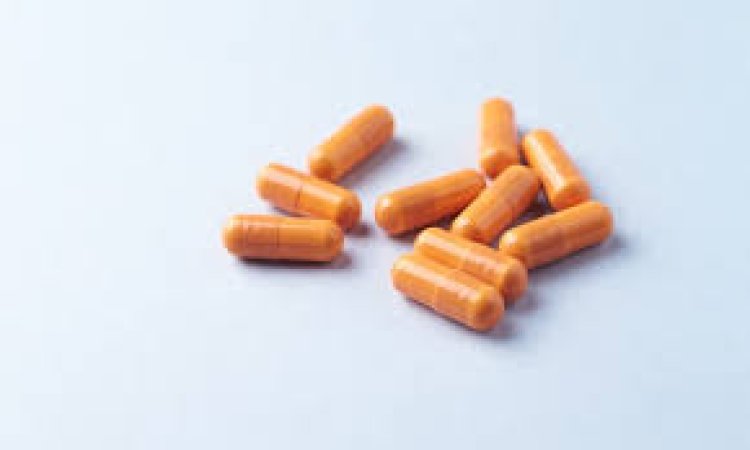Avoiding Pitfalls: How Waiting After Eating Can Impact Your Adderall Experience
Adderall is a stimulant that works by increasing the levels of certain neurotransmitters, like dopamine and norepinephrine, in the brain
Share this Post to earn Money ( Upto ₹100 per 1000 Views )

Adderall, a common prescription medication for attention deficit hyperactivity disorder (ADHD), has a profound impact on focus, energy, and cognitive function. Its effectiveness, however, can be influenced by various factors, including dietary habits. One crucial aspect that many people overlook is the timing of their meals in relation to their Adderall intake. Understanding how waiting after eating can impact your Adderall experience is essential for maximizing the medication’s benefits and minimizing potential side effects.
The Role of Adderall in the Body
Adderall is a stimulant that works by increasing the levels of certain neurotransmitters, like dopamine and norepinephrine, in the brain. This increase enhances concentration, alertness, and impulse control, which are beneficial for managing ADHD symptoms. The medication’s effects generally begin within 30 to 60 minutes after ingestion and can last for several hours, depending on whether it’s an immediate-release (IR) or extended-release (XR) formulation.
The Impact of Food on Adderall Absorption
The timing of your meals can play a significant role in how Adderall is absorbed and utilized by your body. When you take Adderall on an empty stomach, the medication can be absorbed more quickly into the bloodstream, potentially leading to more pronounced effects. However, this approach is not always ideal for everyone. On the other hand, eating a meal shortly before or after taking Adderall can delay the medication’s absorption. This is particularly true for foods high in fat, which can slow down gastric emptying and, consequently, the rate at which Adderall enters your bloodstream. For people who experience side effects like nausea or jitteriness, taking Adderall with a meal might help alleviate these symptoms but can also lead to less predictable medication effects.
How Waiting After Eating Affects Adderall
Waiting after eating before taking Adderall can influence the medication’s effectiveness and the overall experience. Here’s a closer look at how this practice might impact you:
Enhanced Absorption:
If you wait for at least 30 to 60 minutes after eating before taking Adderall, you may experience more consistent absorption of the medication. This waiting period allows your stomach to partially empty, reducing the potential for food to interfere with the medication’s absorption. As a result, you may find that Adderall works more effectively, providing better symptom control.
Reduced Gastrointestinal Discomfort:
For some individuals, taking Adderall on an empty stomach can cause gastrointestinal discomfort or nausea. By waiting after eating, you give your body some time to digest the food and reduce the likelihood of experiencing these side effects. This approach can be particularly beneficial if you have a sensitive stomach or are prone to digestive issues.
Stable Blood Sugar Levels:
Eating before taking Adderall can help stabilize blood sugar levels, which can be beneficial for maintaining steady energy levels and reducing potential side effects such as irritability or mood swings. A balanced meal can help provide a steady source of energy and mitigate the risk of feeling overly jittery or anxious after taking the medication.
Improved Medication Timing:
Waiting after eating can also help you better time the medication’s effects in relation to your daily activities. For instance, if you take Adderall shortly before a meal, you might experience a delay in the medication’s onset, which could affect your ability to concentrate during important tasks or meetings. By planning your Adderall intake around your meals, you can better align the medication’s effects with your daily schedule.
Practical Tips for Managing Adderall and Meal Timing
Establish a Routine:
Develop a consistent routine for taking Adderall and eating meals. For example, if you take Adderall in the morning, try to eat breakfast at a similar time each day. This consistency can help regulate the medication’s effects and make it easier to manage any potential side effects.
Choose Balanced Meals:
Opt for balanced meals that include a mix of proteins, healthy fats, and complex carbohydrates. These nutrients can help stabilize blood sugar levels and provide sustained energy, which can complement the effects of Adderall.
Monitor Your Response:
Pay attention to how different meal timings and types of food affect your Adderall experience. Keep a journal to track your medication’s effectiveness, side effects, and overall well-being. This information can help you make informed adjustments to your routine.
Consult Your Healthcare Provider:
If you’re unsure about how meal timing affects your After Eating To Take Adderall experience or if you’re experiencing persistent issues, consult your healthcare provider. They can provide personalized advice and make any necessary adjustments to your medication regimen.
In Summary
Waiting after eating before taking Adderall can significantly impact the medication’s effectiveness and your overall experience. By understanding how food influences Adderall absorption and adjusting your routine accordingly, you can optimize the benefits of the medication while minimizing potential side effects. Remember to establish a consistent routine, choose balanced meals, and monitor your response to ensure that you get the most out of your Adderall treatment. If you have any concerns or questions, always consult your healthcare provider for personalized guidance.














